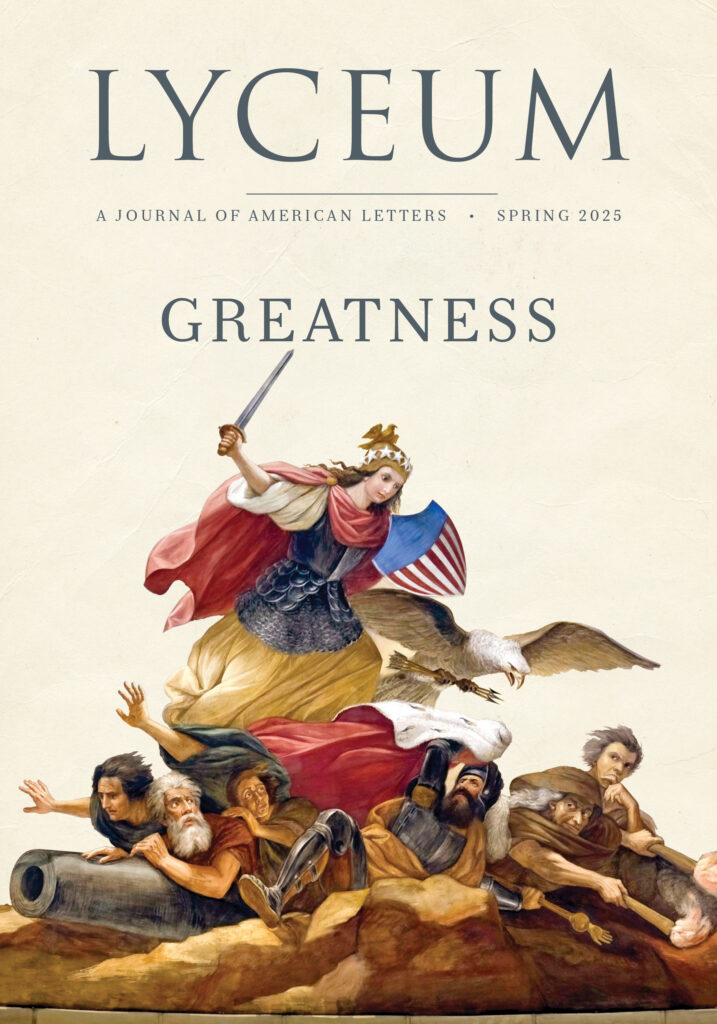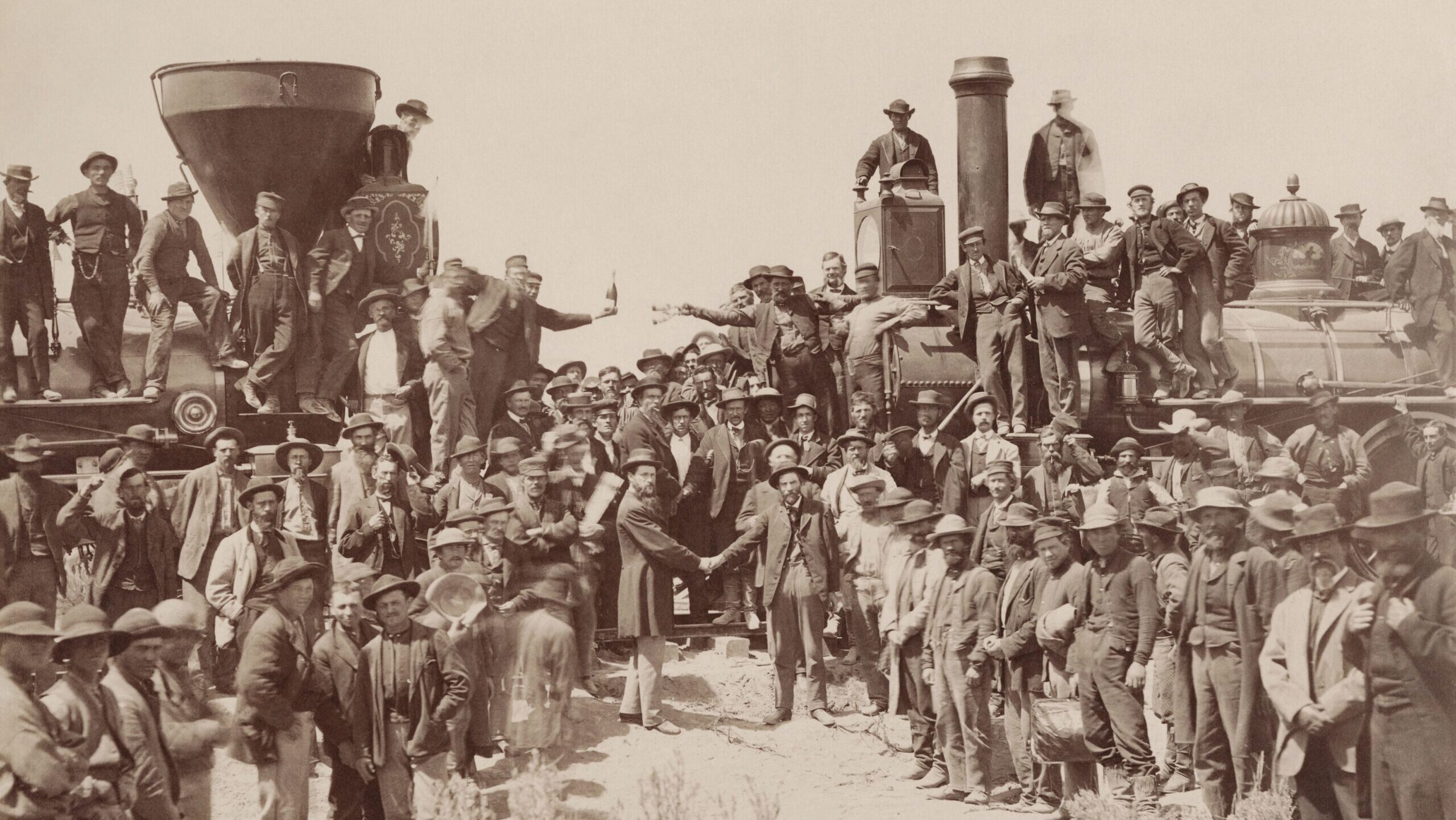Four centuries after the refugees of Troy arrived on the shores of Italy, a legendary king established the promised new city whose stature would one day rival that of the old; it would take five more centuries to rise even as a regional power, and two more still before the city of Romulus stretched out to encircle the sea on which it sat.
Four centuries after the first English plantations on America’s eastern shores, the nation they established stretches across a continent and out into the ocean on either side; six times American men have walked on the lunar surface; and twice in the last century alone, the men of the New World were called upon to redirect the destiny of the Old. Just five generations on from the landing of the Mayflower, the armies of America outfought the forces of an empire greater than Rome even at its peak.
When the republic’s first census was taken in 1790—well within living memory of that fight—the total population of the newly independent states was just shy of four million persons. The five largest cities (New York, Philadelphia, Boston, Charleston, and Baltimore) totaled 109,835 inhabitants between them—the rough population today of the sixtieth-largest city in California.

A hundred years later, the population had grown to 63 million, and (for the first time ever in that 1890 census) settlement had penetrated so far and so widely across the continent that no frontier line could be established on the map. The thirteen states had grown many times over to a total of forty-three. Chicago, less than sixty years from its founding, was the second-largest city in the country—and fifth in the whole world.
The most recent census in 2020 logged a total population of over 330 million, spread in the extremes across ten thousand miles from Guam to the Virgin Islands. There are now fifteen metropolitan areas within our borders whose populations outnumber the whole Union’s at the time of its organization—seven of them beyond the Mississippi. Our flag (and our flag only) adorns a piece of barren ground a quarter-million miles from our home.
Among the world’s largest countries (geographically speaking) only India compares to America in terms of actual settlement—and that after thousands of years of habitation. The rest comprise a few dense population centers paired with vast, uninhabited backcountry. The growth of the American nation across the Appalachians, the Mississippi, the Great Plains, the Rockies, the western deserts, and a dozen other frontiers constitutes a civilizational epic unique not just in scope but in character across the globe and across all history.
To understand America, we must understand that progression; this is the frontier nation, defined in no small part by its drive beyond each successive limit. But we must also understand its origin in four million men and women confined to the eastern coast: the great nation of the new millennium grew from that definite point.
The spread and the rise of the American nation—as, among others, Edmund Burke noted in words quoted in this volume—moved modern man a very long way toward fulfilment of that most ancient commandment: fill the earth, and subdue it.
The particular words come from Bishop Challoner’s revision of the Douay-Rheims Version of the Bible, the finest translation ever made into English. Readers may notice, however, that Lyceum makes no use of the Douay-Rheims elsewhere. We depend instead on the King James Version (which, for instance, uses not the good Germanic “fill” but the Latinate mouthful “replenish” in Genesis 1:28) for the simple reason that it is the version of our American forefathers. More dust kicked up from the pioneer trails onto the covers of the King James Bible than any other book—than, we dare say, nearly any other object. It furnished the language for four centuries of American prayers and imaginings.
Likewise John Dryden’s translation of Vergil, which stands in its own right as a major poetic accomplishment by one of the great masters of the English language, and which would have been familiar to the Founders. With Cicero we have no such luxury, since the great bulk of the text of De republica was only rediscovered in a palimpsest in the Vatican Library in the time of President Monroe, and no translation was published widely until a few years later still—incidentally, by a far-ranging Englishman responsible for a geological survey of the Louisiana Purchase, who also stayed at length among the Cherokee in the 1830s.
In other details, too, we hope the reader will humor us. On opening this volume, you are greeted by a very famous quote of the journalist-politician Horace Greeley, one that epitomizes the spirit of westward expansion in America’s early history: “Washington is not a place to live in. The rents are high, the food is bad, the dust is disgusting and the morals are deplorable. Go West, young man, go West and grow up with the country.” That this quote is attested nowhere in Greeley’s many writings is a minor inconvenience; the sentiments are true enough, and truer still after two hundred years of ripening. (The editors, both having spent their younger days in the newsrooms of the Swamp, expect that the rent, the food, the dust, and the morals would now send Horace Greeley into fits of rage.)
One more sentiment which the reader will find later in these pages is worth calling forward to the front of the volume: “Men who are but of yesterday, and will never see to-morrow, must seize time by the forelock. But those empires which hope for eternity can wait.” These words close Speaker Thomas Reed’s warning to the America of 1897 on the dangers of growth unchecked by prudence. He did not wish to see his country join the long list of empires from Chaldea to Napoleon whose ambition outpaced their power, and who met destruction for it. He echoed the words of Abraham Lincoln inscribed in the cover of our inaugural issue: “If destruction be our lot, we must ourselves be its author and finisher. As a nation of freemen, we must live through all time, or die by suicide.”
But you cannot wait forever. In the life of a nation, just as in the life of a man, decisions must be made. The fight for independence, the settlement of the west, the launch into the stars—these are the sum of the decisions first of four million, then of sixty million, and finally of three hundred million Americans: an empire hoping for eternity.
Rome realized that hope, even after barbarian hordes charged through its ruined palaces; Britain fumbled it, even before its navy girdled the globe. A century and a quarter on from Reed’s unheeded warning, America approaches another decision point; for us, eternity still hangs in the balance.
Included in Lyceum No. 2: Greatness
- Meriwether Lewis
- Presidents Thomas Jefferson, James Monroe, James K. Polk, and Donald J. Trump
- Thomas B. Reed
- G.B. Rango
- James Fenimore Cooper
- Lord Byron
- Frederick Jackson Turner
- Micah Meadowcroft
- Hamilton Craig
- Pavlos Papadopoulos
& more


